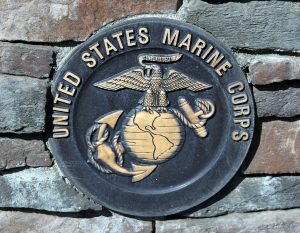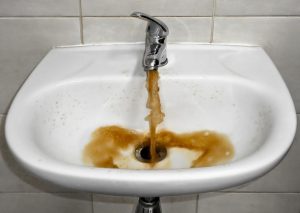 Today I will discuss the Camp Lejeune toxic water litigation, and if there is one fact that I can leave you with in this post, it is this: the deadline for bringing an administrative claim is August 10, 2024.
Today I will discuss the Camp Lejeune toxic water litigation, and if there is one fact that I can leave you with in this post, it is this: the deadline for bringing an administrative claim is August 10, 2024.
The Camp Lejeune legislation that was passed about two years ago is rather extraordinary, and what it has done is allowed people who were injured years and sometimes decades ago to bring a current viable claim against the federal government for serious illness and injury suffered as a result of toxic water in and around the Camp Lejeune Marine Corps Base, but if you have a claim and do not file an administrative claim with the US Navy by August 10, 2024, then you will be out of luck, and you will have no recourse to compensation.
Now the good news is filing the administrative claim, which starts the ball rolling to identify to the federal government that you want to bring a claim, filing that administrative claim is somewhat straightforward. I do not believe individuals should represent themselves in this matter. I believe you need an attorney who’s familiar with this litigation to handle that process for you, but the good news is the administrative claims process is not nearly as complex as actually filing a lawsuit, which you certainly will have to do in the months after you file an administrative claim, so write down the date, put it on a Post-it note, or tape it to your refrigerator; and you need to contact an attorney immediately if you believe you or someone you loved, even a deceased parent, or even a grandparent, may have been harmed by exposure to the toxic water at Camp Lejeune.
Let’s back up a bit and talk about this legislation that was passed in August of 2022. I’m going to call it the Camp Lejeune Water Act because that’s simple and everybody can remember it, but in any event this legislation was the culmination of years of dedicated work from concerned citizens, Marine Corps Veterans, attorneys, many people who pushed and pressed the federal government to recognize that thousands of Marine Corps service persons and their families, and the workers who worked on Camp Lejeune, were gravely harmed by decades of toxic water that surrounded the Camp Lejeune Marine Corps Base. The legislation essentially says that anyone who resided worked or was otherwise exposed to water in and around the Camp Lejeune Marine Corps Base for a period of not less than thirty days during these critical dates, August 1, 1953 to December 31st, 1987, would potentially have a claim for financial recovery against the federal government for illness suffered from this toxic water. As you can see, these dates go back far into the past: 1953 is over 70 years ago and the end date December 3, 1987 is almost 40 years ago, so the cohort of potentially injured plaintiffs would be those who were on Camp Lejeune base for thirty or more days between 1953 and 1987, and in that period of time they were exposed repeatedly to the toxic water. So we are looking at almost 35 years where thousands of people were potentially exposed and harmed by this toxic water.
Because these dates go back so far into the past, a lot of these cases will involve individuals who have passed away. You can do the math pretty quickly and recognize that some of these viable claims will be from individuals that right now would be passed away or very old; as as one example, if there was an active duty military person who enlisted in the Marine Corps in the early 50s, that person was probably born in the 1930s, which means he could well be 90 years old right now or even older, so the universe of potential claimants in this litigation could be people that are 90, 80, 70, 60, 50 years old.
The good news is that Camp Lejeune in Jacksonville eventually cleaned up the water sources around Camp Lejeune, so the end date for this exposure to toxic water is December 31, 1987. If you were in an active duty Marine in the late 1980s or 90s or 2000s, then it is most likely the case that you were not exposed to toxic water in and around Camp Lejeune. If you are currently 40 years old, and when you were 20, you lived on the Camp Lejeune base for a year or 8 months, you would not have been exposed to toxic water at Camp Lejeune.
In any event, the people that this legislation is directed toward are those who served in the Marines, were a dependent of an active duty service member, were contract workers on the Marine Corps Base, worked steadily as a civilian on the Marine Corps Base, and then lived or visited base over several months, such that the person can identify at least thirty days that they were on Camp Lejeune Marine Corps Base between 1953 and 1987, and therefore you would be able to establish that you have a claim against the government.
 In the master complaint for the plaintiffs in this litigation, the language that the plaintiffs’ executive team has used is stark, essentially they say that scientists have described the Camp Lejeune water disaster as the worst public drinking water contamination crisis in our nation’s history.
In the master complaint for the plaintiffs in this litigation, the language that the plaintiffs’ executive team has used is stark, essentially they say that scientists have described the Camp Lejeune water disaster as the worst public drinking water contamination crisis in our nation’s history.
The Master Complaint says that between 1953 and 1987, Camp Lejeune provided contaminated water to those on base. This water flowed out of faucets and taps and barracks, housing, buildings, elementary schools, hospital wards, and one or more studies indicate that the contaminants were 280 times higher than what the Environmental Protection Agency considers safe. The next question you maybe asking or concerned about is what kind of diseases or illness might have resulted from these particular types of contaminants, overwhelming the drinking water supply at Camp Lejeune. The short answer is many types of cancer and other diseases have occurred because of this exposure to toxic water.
Some of the cancers and other diseases that have been mentioned as associated with exposure to this contaminated water include leukemia, non-Hodgkin’s lymphoma, certain cancers like bladder cancer, kidney cancer, lung cancer, liver cancer, multiple myeloma, also Parkinson’s disease, certain types of kidney disease, end stage renal disease, systemic sclerosis and scleroderma. There seems to be quite a few potential qualifying injuries that you need to be aware of as you navigate whether you need to try to participate in this litigation, but again I want to emphasize that scientists have been studying this exposure to toxic water for decades now, both related to Camp Lejeune and generally how the human body reacts to exposure to the contaminants that have been identified in the Camp Lejeune water.
Once you file that administrative claim (by August 10, 2024), you have six months to get a response from the government, and after that you can file a lawsuit in the Eastern District of North Carolina. The deadline for filing a lawsuit is February 10, 2025.
The Master Complaint estimates that as many as one million individuals were exposed to toxic water at Camp Lejeune for the relevant period, which means there could be as many as one million claims in this case, so it’s going to be a massive litigation, it’s going to take a long time to process these individual lawsuits. This is not a class action, it is not a multidistrict litigation, which I’ve written about on this website.
This statute and the resulting litigation are great opportunities to pursue compensation if you’ve lost a loved one to cancer, and then find out that the illness was most likely based on exposure to toxic water at Camp Lejeune. If you have any questions about the Camp Lejeune litigation, feel free to call me. My direct line in the office is 919.334.6277.
In any event, good luck. I hope you get your administrative claim filed by August 10, 2024, and I hope you are fairly compensated for these tragic diseases.
Please note that this post is for informational purposes only and is not legal advice nor intended to be legal advice. If you need a legal opinion about your particular case, contact me or another attorney.
 North Carolina Product Liability Lawyer Blog
North Carolina Product Liability Lawyer Blog

